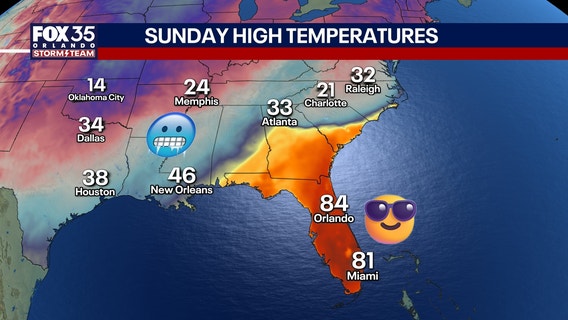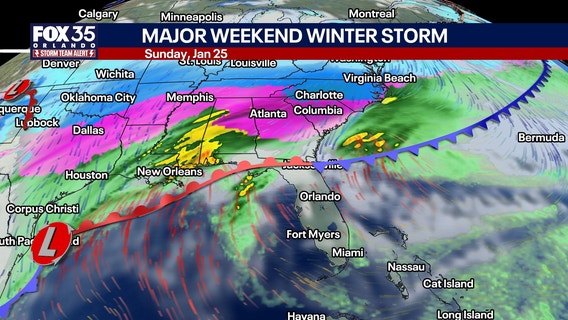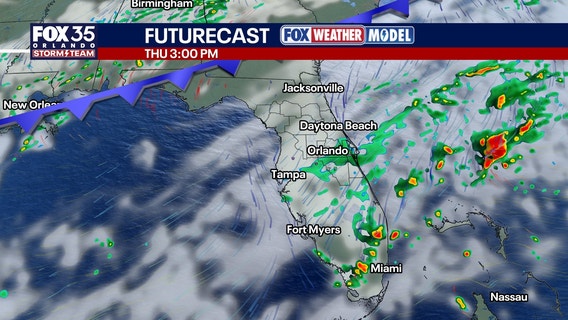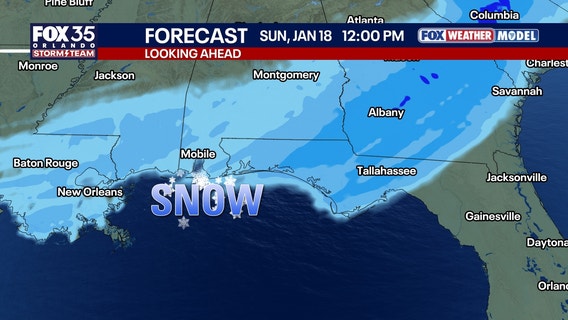
Brooks Garner
Meteorologist Brooks Garner has been part of FOX 35's Storm Team since June 2021, leading viewers and the newsroom through Florida's major weather events, including severe weather, tornadoes, heatwaves, tropical storms, and hurricanes.
You can watch Brooks on weekday mornings on FOX 35's Good Day Orlando, 4 a.m. - 10 a.m.
Brooks recently went viral after he was on the air tracking severe weather in Central Florida and a tornado passed over the station – all caught on camera. He's also helped lead hurricane coverage for Hurricane Ian, Idalia, Nicole, Helene, and Milton.
He holds dual seals of approval from the American Meteorological Society and the National Weather Association. His weather coverage has earned him an Edward R. Murrow Award, several Emmy Awards, and an AP Award.
Before Orlando, Brooks worked in Boston, Massachusetts; Denver, Colorado; Columbia, South Carolina; Houston, Texas; and Tampa, Florida.
Other career highlights include flying into Hurricane Sandy with NOAA’s Hurricane Hunters and covering Hurricane Harvey’s destruction across Texas and Louisiana, where his station was eventually destroyed by floodwaters.
When he’s not tracking storms, Brooks enjoys spending time with his wife Erica and their children, exploring the natural wonders of Florida.
The latest from Brooks Garner
Don't ignore the light: Tire pressure tips for near-record cold weather
Have you checked your tire pressure today? Chances are your car's tire pressure decreased due to the cold front stretching through Central Florida this week.
Winter storm: How Orlando airport is preparing for flight delays, cancellations, stranded passengers
Though Central Florida isn't in the direct path of a winter storm expected this weekend, Orlando International Airport is setting up some precautions for travelers.
Orlando weather: Warm temps this week before another cool down
Partly cloudy skies are expected this evening and tonight.
Major southern winter storm expected this weekend: How this affects road and flight travel
If you’re heading out of Orlando this weekend by car or plane, this is one of those situations where a little planning now can save you a major headache later.
Orlando weather: Central Florida warms up with chance of rain late week
After a couple of starry and cold nights, we'll see and feel some changes overnight. Clouds start to increase and that as well as more of an onshore wind will make for a milder night.
Has it ever snowed in Orlando before? Here's what the records say
Has it every snowed in Orlando before? Here is what the records say. With a second cold front on the way, there is a chance is could snow in northern Florida.
Dense fog to start the morning in Central Florida
A Dense Fog Advisory is in effect for Brevard, Osceola, Orange, Lake, Seminole, Volusia, Flagler and eastern Marion Counties until 9 a.m.
Orlando weather: Clear, milder night ahead as warmer weather build into the weekend
A clear sky and milder temperatures are expected overnight. Temperatures will be several degrees warmer than recent nights.
Orlando weather: Temperatures dip across Central Florida, freeze warnings for multiple counties
Temperatures across Central Florida are cooler than normal, making for a cold end to the year.
Tire pressure dropping in New Year's Eve cold weather? Here's why and where to get free air
Did you experience lower tire pressure today? Chances are your car's tire pressure decreased due to the cold front stretching through Central Florida this week.











